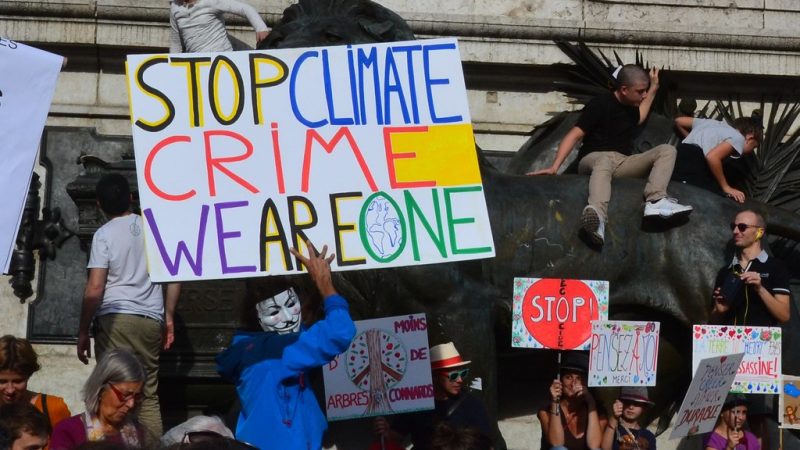The government must make sure that climate action really does go hand-in-hand with improving living standards, and a fair distribution of costs and benefits

Labour must get out ahead of any backlash on green policies, writes Eloise Sacares
Labour has rightly laid out an ambitious agenda on climate and net zero. At conference, ministers celebrated the introduction of the Great British Energy Bill in Parliament, ending the effective ban on onshore wind, and the party’s ambition for clean power by 2030. But as their policies start to affect people’s lives, and when the momentum of a new government runs out, they must continue to bring voters with them on a difficult journey.
The politics of climate policy are more complex than many assume. Working class people are not averse to climate action – and in the UK climate action is relatively popular across all groups. But there’s a sting in the tail that can’t be ignored. Much of this support is theoretical and subject to change, particularly when the salience of climate change falls, the messaging is poor, or when the policy affects people’s everyday lives directly, or feels unfairly applied. And vocal minorities can mobilise, cut through and have real sway on both political strategy and policy.
There are numerous examples. One is the ULEZ expansion in London, which the Conservatives interpreted as contributing to their narrow victory over Labour in the 2023 Uxbridge by-election. Regardless of whether this is true, this perception completely transformed the Conservatives’ election strategy, and national government policy – but not, of course, the ULEZ policy itself, which was rolled out without much incident. Sadiq Khan held the Mayoralty comfortably, and the constituency was won by Labour in the following General Election.
Another example is Labour’s proposed £28 billion Green Prosperity Plan. First, this pledge foregrounded the size of the spending commitment (and borrowing) instead of the policies and ambition behind the commitment. The focus on the £28 billion figure led to heavy questioning from the media in the context of a party running on a platform of strict fiscal rules. But they also failed to ‘roll the pitch’ sufficiently ahead of the announcement, and to emphasise the real difference it would make to people’s lives, until it was too late. This led to a major and important investment being watered down substantially.
In government, Labour must get this right. They have much more latitude and a window of opportunity, both to act, and to show that climate action works. But they will also face a backlash from being in government, and making decisions that have costs as well as benefits. There are three things they can do to make sure political strategy supports climate action.
First, the government’s messaging must connect, by understanding that progressives have a very different mindset to the vast majority of the population. People are generally supportive of action to meet net zero, but many view the idea of a ‘green industrial revolution’ with major scepticism. In fact, Fabian research found this was an incredibly unpopular framing amongst all but the most progressive groups in society. Messages that emphasise nature, quality of life and shared values have broader appeal among some of the more sceptical groups, as well as among those already supportive of climate action. Further, stories often work well to persuade, while slogans and jargon such as ‘net zero’ can conjure further scepticism. This may appear obvious, but it is often forgotten.
Second, the government must get ahead of negative and inaccurate messages that could be circulated by opposition parties or the press. The opposition to the ULEZ expansion was likely exacerbated by relentless press coverage and overestimation among voters of who would be impacted. Misinformation is almost impossible to stop once it’s out there, with several studies having shown that trying to ‘bust’ myths that already exist in the public consciousness can actually further reinforce them. Labour must instead pre-empt chances for misinformation to spread and get ahead of it with accurate and effective messaging, before it’s too late.
Finally, and perhaps most importantly, the government must make sure that climate action really does go hand-in-hand with improving living standards, and a fair distribution of costs and benefits. Delivering climate action is the most important challenge of our lifetime, but despite that, governments will fail if their action comes into direct conflict with people’s more immediate, tangible challenges – and especially if they don’t see others paying the price too. There will be costs and inconveniences, but they must be mitigated as far as possible, and the burden shared. And sometimes, timing is everything – policies that increase the cost of living, during a cost-of-living crisis, will be understandably unpopular.
Toward the end of their time in opposition, Labour often got their climate messaging right. They were rightly focused on reducing bills, and dependency on Russia, for example. But they must now adapt to government, and the different challenges it poses. Labour has come into office at perhaps the most crucial time for the planet. They must get this right.
Eloise Sacares is a researcher for the Fabian Society.
Left Foot Forward doesn't have the backing of big business or billionaires. We rely on the kind and generous support of ordinary people like you.
You can support hard-hitting journalism that holds the right to account, provides a forum for debate among progressives, and covers the stories the rest of the media ignore. Donate today.



